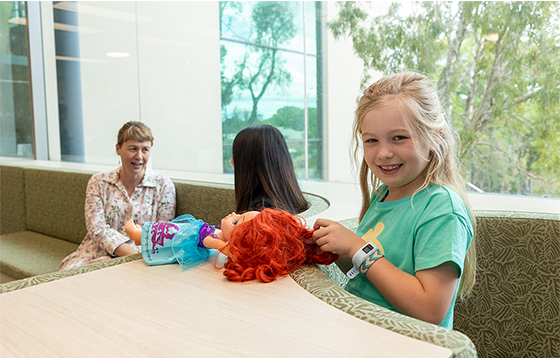Search

News & Events
Service availabilityAre you tired of being on waitlists to access supports for your family? CliniKids has immediate availability for a number of therapies and programs in clinic (Subiaco and Joondalup) or via telehealth.

News & Events
Autism Researcher a Finalist for Western Australian of the YearProfessor Andrew Whitehouse has been named a finalist in the 2023 Western Australian of the Year Awards for his work in transforming clinical support for autistic children in Australia.

News & Events
Researchers at The Kids push back against claims linking paracetamol to autismResearchers at The Kids Research Institute Australia have pushed back against claims by US President Donald Trump linking paracetamol use during pregnancy to autism.

CliniKids has two clinics - in Subiaco and also in Joondalup.

This series aims to provide some practical and evidence-based ideas to support your child and family.
Research
Community perspectives on the appropriateness and importance of support goals for young autistic childrenResearchers do not know much about what autistic adults, parents and professionals think about support goals for young autistic children. People's views of support goals might also be influenced by their beliefs about early support more generally. This survey involved 87 autistic adults, 159 parents of autistic children and 80 clinical professionals living in New Zealand and Australia.
Research
Improving the Journey Before, During and After Diagnosis of a Neurodevelopmental Condition: Suggestions from a Sample of Australian Consumers and ProfessionalsThe current study used a transdiagnostic approach to explore experiences of consumers and professionals on how the process of assessing and diagnosing neurodevelopmental conditions can be improved.
Research
Australian Clinicians’ Considerations When Choosing an Assessment of Functioning Tool for Children with Neurodevelopmental ConditionsIn the Australian disability context, the assessment of children with neurodevelopmental conditions’ functioning (across all domains) is of increasing importance, particularly since the introduction of the National Disability Insurance Scheme. Currently, there is wide variability across assessment of functioning practices, including the choice and use of published tools for assessment.

News & Events
The Kids researchers named as finalists in 2023 Premier’s Science AwardsFive The Kids Research Institute Australia researchers working across diverse and highly impactful areas of child health research have been named as finalists for the 2023 Premier’s Science Awards.
Research
First Impressions Towards Autistic People: A Systematic Review and Meta-AnalysisEmerging evidence suggests that observers tend to form less favorable first impressions toward autistic people than toward non-autistic people. These negative impressions may be associated with immediate behavioral responses, as well as long-lasting attitudes toward those being observed that may negatively impact their psychosocial wellbeing.
